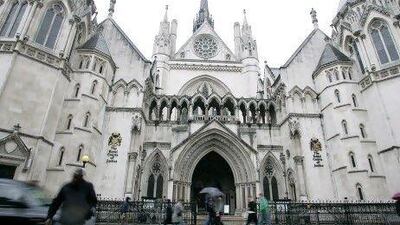The relatives of nine Serbians killed and abducted in Kosovo have lost their appeal in a damages case against the British foreign office.
The families had claimed a prosecutor employed by the foreign office had failed to properly investigate the murders and disappearances of their relatives in breach of the Human Rights Act.
Between 2013 and 2016, the foreign office seconded Jonathan Ratel to the role of Head of the Special Prosecutions Office of the Republic of Kosovo (SPRK) to investigate war crimes.
The foreign office said Mr Ratel was immune from the legal process and that his immunity could not be circumvented by an action against them, and the claimants were not within the jurisdiction of the UK.
It also said Mr Ratel’s conduct of his official functions as head of the SPRK was not attributable to the UK and that the Human Rights Act 1998 was not applicable to the claim because the incidents took place before it came into force.
In December 2019, Mr Justice Johnson had rejected the relatives' claims and now Lady Justice Simler, sitting at London's high court has dismissed their appeal against his decision.
“I wish to acknowledge the grave impact those crimes and the absence of any investigation has had on them,” she said.
“The circumstances, and the ongoing lack of closure for them, are plainly tragic and undoubtedly distressing.
“The claimants can rest assured that I have considered all of the material provided in support of this application and all points made on their behalves.
“Nothing I have said should be read as detracting in any way from the tragic circumstances with which they and their families have had to contend. Nor for the reasons given, are there exceptional circumstances that justify reopening the application.”
She ruled that at the material time the foreign office was not responsible and had no direct control over Mr Ratel’s actions and the claimants were not within the jurisdiction of the UK.
“It is clear that allowing the claims to proceed to trial would lead to the same result and accordingly there is no injustice in the claims being stopped at this stage,” she said.
The claims were brought by the wives and mothers and brothers of nine men killed during the war in Kosovo between 1999 and 2000.
One of the victims, Dr Andrija Tomanovic, was director of surgery at Pristina Hospital.
The 63-year-old was abducted from the hospital in 1999 and his body has never been found.
Father and son, Dimitrije and Aleksandar Milenkovic, were abducted and shot in 1999.
Power plant engineer Zoran Kontic had escaped from Kosovo with his wife after receiving threats but had been told to return to work because “British troops required assistance in restarting the power plant.”
But days later he was found murdered in his home.
Pit employee Predrag Todorovic, a father-of-four, had moved to Obilic where he thought his family would be safe.
He was lured from his home by a woman screaming for help and was shot 30 times.
Mechanic Miroljub Milovanovic was murdered with his friend when armed men ambushed him in his car, and Slavko Veselinovic, who also worked at the mines, was shot dead by soldiers.
Electrician Zivorad Jovanovic was shot by five armed men and Srdjan Peric was inspecting his land on the outskirts of his village when he was shot in the head and killed.
Each of the incidents took place after the establishment of an international presence in Kosovo under the authority of the United Nations.
The court was told “nobody has been brought to justice for the killings/disappearance” and they have “not been investigated”.
Last year, Kosovo's President Hashim Thaci resigned after it was revealed he must face a war crimes court in The Hague.
He has been charged with war crimes dating back to the conflict with Serbia in the 1990s, when Mr Thaci was the political chief of Kosovo's rebel army.


